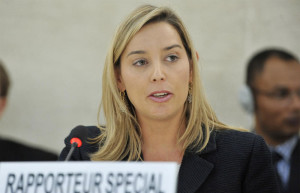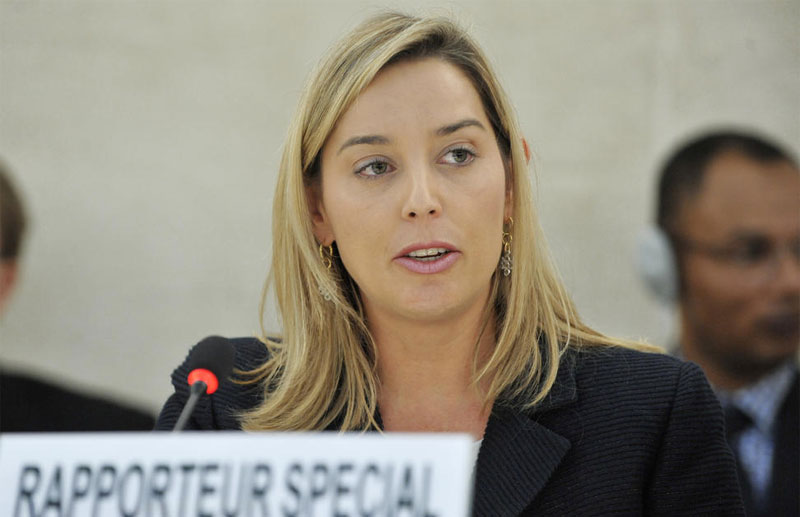 |
| Special Rapporteur on the Independence of Judges and Lawyers Gabriela Knaul. UN Photo/Jean-Marc Ferré |
31 December 2012 – Intimidation and attacks against judges and judicial officers in Sri Lanka are increasing in what may constitute a threat to the independence of the justice system in the Asian country, a United Nations independent expert warned today.
“The recent steps taken by the executive and legislative towards impeaching the Chief Justice appear to be the culminating point of a series of attacks against the judiciary for asserting its independence,” the UN Special Rapporteur on the independence of judges and lawyers, Gabriela Knaul, stated in a news release.
According to reports received by Ms. Knaul, attacks and threats against members of the judiciary and lawyers in Sri Lanka, as well as interference in their work, have “dramatically increased” in recent months, with the procedure of impeachment of the Chief Justice of the country’s Supreme Court, Dr. Bandaranayake, launched before the Parliament on 1 November, being a particularly evident example. On 8 December, the inquiry investigating Dr. Bandaranayake found her guilty of three out of the five charges which it had pursued.
“It is of high concern to me that the procedure for the removal of the Chief Justice of the Supreme Court is extremely politicized and characterized by lack of transparency, lack of clarity in the proceedings, as well as lack of respect for the fundamental guarantees of due process and fair trial,” Ms. Knaul said.
“I urge again the authorities of Sri Lanka to reconsider the impeachment of the Chief Justice due to the lack of due process and fair trial guarantees and to ensure that the judiciary can operate free from external pressures, threats or any interference,” she added.
In the Special Rapporteur’s view, according to the news release from the Office of the UN High Commissioner for Human Rights (OHCHR), the procedure for the removal of judges of Sri Lanka’s Supreme Court, set out in article 107 of the country’s constitution, allows the Parliament to exercise considerable control over the judiciary – and is therefore incompatible with both the principle of separation of power and article 14 of the International Covenant on Civil and Political Rights.
The UN expert urged Sri Lankan lawmakers to modify the country’s constitution in order to render it compliant to international human rights law and prevent the future political persecution of independent judges.
“To be compatible with both the principle of separation of powers and international human rights law norms, disciplinary proceedings against judges should be conducted by independent commissions and guarantee full respect for due process and fair trial,” Ms. Knaul concluded.
Independent experts, or special rapporteurs like Ms. Knaul, are appointed by the Geneva-based UN Human Rights Council to examine and report back, in an unpaid capacity, on specific human rights themes.
